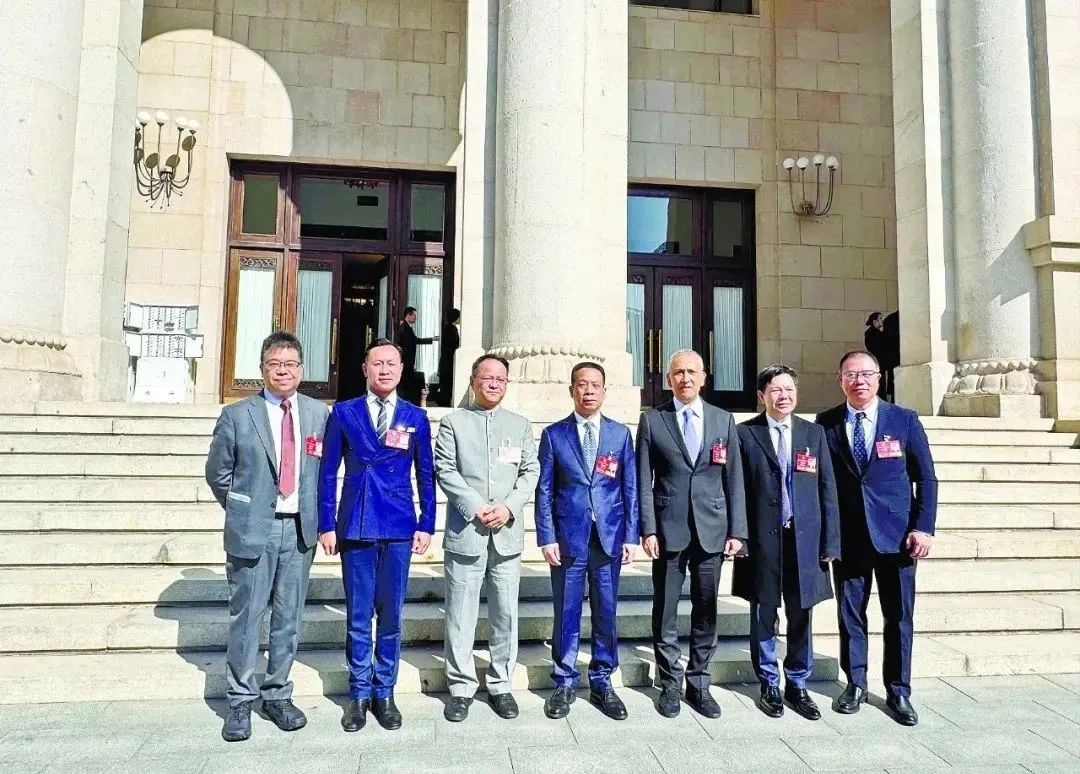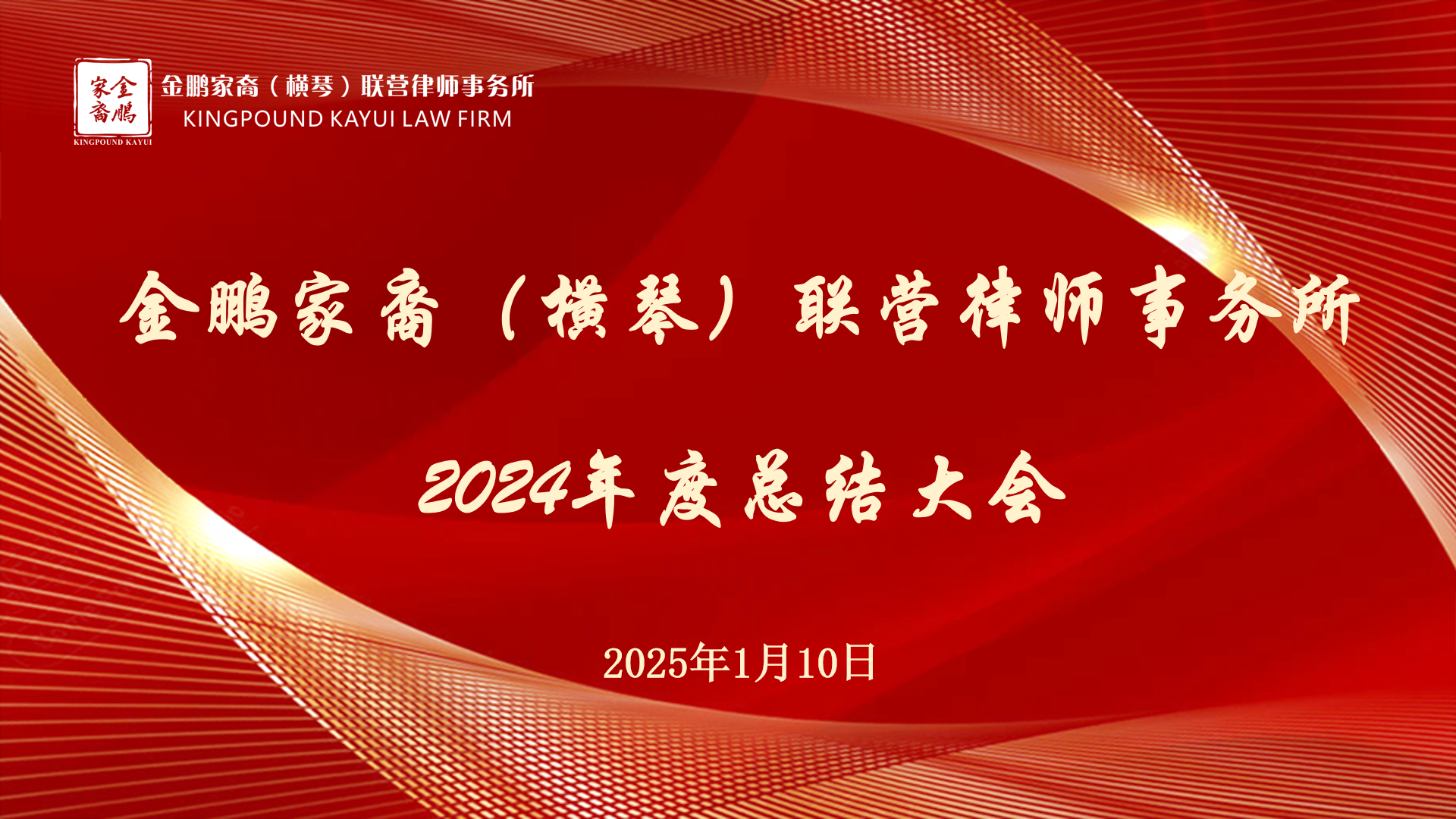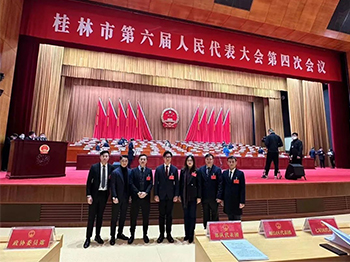The Supreme Law issues important judicial interpretations! Related to the division of cohabitation property and the ownership of real estate at the time of divorce
Today, the Supreme People's Court issues Judicial Interpretation II of the Marriage and Family Compilation of the Civil Code to further regulate the hot issues of widespread concern in society since the implementation of the Civil Code, as well as the new situations encountered in the trial of marriage and family disputes and the disputes that urgently need to be resolved. Focus on solving the difficult problems in trial practice of social concern, such as the ownership of parents' investment in the purchase of houses for their children after marriage, the determination of real estate given by husband and wife based on marriage, the donation of husband and wife's common property to others in violation of their duty of loyalty, the seizure, concealment of minor children, the division of cohabitation property, and malicious evasion of debts through divorce, unify the rules of law application and judgment, and determine the termination of disputes. The head office reporter interviewed the relevant person in charge of the Supreme People's Court to thoroughly interpret the new provisions of judicial interpretation.
How to divide the property of the children when they divorce
In China, when children marry, it is common for parents to invest in the purchase of houses for their children, which is not only a way of inheriting family property from generation to generation, but also a blessing and material support for the happiness and satisfaction of their children's marriage. However, when the children divorce and divide the common property of the husband and wife, the ownership of the house purchased by the parents often becomes the focus of disputes between both parties. This is stipulated in the judicial interpretation of the Civil Code Marriage and Family Compilation promulgated by the Supreme Law.
According to the provisions of the Civil Code, the property donated during the existence of marriage belongs to the joint property of husband and wife, except that the donation contract determines that only one party belongs to it. At the time of divorce, both parties may divide their common property by agreement. If they fail to reach an agreement, the people's court shall make a judgment according to the property situation.
Judge Wang Dan of the First Civil Division of the Supreme People's Court: What is the specific situation of property? We think that the source of capital contribution of property should be a situation of the specific situation of property, that is, when divorce separates the joint property of husband and wife, it is normally half of one person. However, if the source of the property comes from one of the husband and wife or one of the parents, the source of the property should be taken into account when dividing, and it may not be half of one person.
Judicial interpretations distinguish between the full contribution of one parent and the contribution of both parents or the partial contribution of one parent, and stipulate them separately.
Judicial interpretations distinguish between the full contribution of one parent and the contribution of both parents or the partial contribution of one parent, and stipulate them separately. The first case: one parent makes full capital contribution. Interpretation stipulates that if the gift contract stipulates that only their own children shall be given, it shall be dealt with in accordance with the agreement; If there is no agreement or the agreement is not clear, the house may be judged to be owned by the child of the investor regardless of whether it is registered in the name of his child, so as to protect the interests of the parent of the investor. However, at the same time, it is also necessary to take into account the facts of living together and giving birth to a common child, divorce fault and other facts to determine whether compensation is required for the other party and the specific amount of compensation.
For example, when Xiao Ming and Xiao Hong got married, Xiao Ming's parents bought a house for them in full, but there was no clear agreement that the house would only belong to Xiao Ming, and the two parties divorced after living together for five years. According to the latest judicial interpretation, after the divorce of Xiao Ming and Xiao Hong, the court will take into account the capital contribution of Xiao Ming's parents and award the house to Xiao Ming. At the same time, the court will also consider the contribution of Xiao Hong in marriage, such as the time spent together, whether there are children and divorce fault, and decide to make reasonable compensation to Xiao Hong.
The second case: both parents have contributed to the house or one parent has contributed part of it. As the sources of investment in different cases and the proportion of investment by all parties are different, it is difficult to determine which party owns the house, which needs to be handled separately according to the circumstances of the case.
Chen Yifang, President of the First People's Court of the Supreme People's Court: For example, if one parent invests 20% and the other parent invests 80%, in principle, it will be determined that the house is owned by the parent of the 80% investor, but the compensation given to the other party is not necessarily 20%, which should be judged according to the circumstances of both parties' marriage, common life, the birth of (common) children, and the fault of marriage. According to the provisions of the Civil Code, the amount of compensation to the other party shall be determined from the principle of taking care of children, the woman and the innocent party. This amount may be less than 20% or more than 20%. Real life is very complicated, which requires the judge to comprehensively ascertain the facts of the case and make a legitimate and reasonable judgment after comprehensive consideration.
The judge said that when determining the ownership of a house purchased by parents, the judicial interpretation pays attention to the protection of personal property rights and at the same time maintains the harmony and stability of marriage and family.
Wang Dan, Judge of the First People's Court of the Supreme People's Court: In principle, if one of the parents is wholly-owned, the interests of the investor shall be protected, but we should protect the party who has paid for the marriage and family according to the special circumstances of the marriage and family, respect the value paid by him, and guide everyone to stop paying attention to the addition and registration, which may sow seeds of discord in the marriage. Finally, if we say that in case the marriage of both parties fails to reach a long-term level, in the case of divorce, the judicial department shall comprehensively consider the situation according to the investment and payment of each party, and finally balance the interests of both parties, which also guides everyone to pay more attention to the family, and can enhance the cohesion and centripetal force of the family.
How to divide the property acquired during the period of cohabitation between the two parties
In recent years, property disputes caused by cohabitation have gradually increased and become a hot issue of social concern. Although cohabitation is not protected by law, the property rights of the parties to cohabitation should be protected by law. Therefore, how to distribute the property obtained during cohabitation still needs clear legal rules to regulate it, and this judicial interpretation stipulates the division of property in cohabitation relations.
According to the law of our country, only when marriage registration is handled and both parties have marriage relations, can they enjoy the rights and obligations between husband and wife. Cohabitation is different from marriage. Both parties to cohabitation do not enjoy the rights and obligations between husband and wife, and the statutory joint property system of husband and wife is not applicable. What are the rules governing the distribution of property acquired during cohabitation?
Chen Yifang, President of the First Civil Division of the Supreme People's Court: First of all, we respect the autonomy of the parties. If the parties have an agreement, it shall be handled in accordance with the agreement. In the absence of an agreement, it is in accordance with the principle of "ownership of their own property". For example, both parties have wages, and their respective wages belong to each other.
However, in the process of living together, the two parties may not be able to distinguish clearly between their properties due to joint investment in the purchase of property and joint production and operation investment. Under such circumstances, how will the courts be divided?
The judicial interpretation stipulates that the proportion of capital contribution is the primary consideration, and on this basis, the division shall be carried out by taking into account the facts of common living conditions, whether there are common children and the size of contributions to property.
Chen Yifang, President of the First Civil Division of the Supreme People's Court, said:
One is the living situation of both parties, such as the length of time they have lived together and how much they have paid for their lives.
The second is to consider whether there are children, involving the maintenance of children and the burden of future maintenance costs.
Thirdly, the contribution to the property obtained during the period of joint investment shall be considered, such as the joint investment and operation of both parties, but mainly the actual operation of the other party, so the contribution of both parties shall also be considered when dividing the property.
In a word, we should take the above factors into account according to the specific circumstances of each case and properly handle the interests of both parties.
For example, during the period of cohabitation, Xiaoming and Xiaohong jointly invest in opening a shop, with Xiaoming contributing 70% and Xiaohong contributing 30%. When the property is divided, the proportion of investment will be considered first. However, if the operation of the shop is mainly the responsibility of Xiaohong, and the income from the value-added part of the shop is mainly due to the efforts of Xiaohong, the court may appropriately increase the share of Xiaohong to reflect its contribution to property appreciation.
This is also a reminder that during cohabitation, it is best to reach a clear written agreement on the distribution of property in advance to avoid disputes in the future.
Strictly regulating acts of seizing and concealing minor children
In practice, during the period of separation or divorce proceedings between the two parties and after divorce, some parents will use drastic means to prevent the other party from visiting their children, or even seize or conceal their children, and judicial interpretations have responded to such acts.
According to the Supreme Law, seizing or concealing a minor child not only infringes upon the right of the other parent to support, educate and protect the child according to law, but also, more importantly, seriously damages the physical and mental health of the minor child, and should be resolutely prevented and stopped. The judicial interpretation shall regulate the act.
Wang Dan, Judge of the First People's Court of the Supreme People's Court, said:
The first is to stop illegal acts quickly and restore children to their original state of life quickly by issuing personal safety orders or prohibitions on acts.
Secondly, when one party is still unwilling to divorce, we have made it clear in the case of guardianship disputes that the court may decide to temporarily determine the maintenance of minor children.
Thirdly, when determining which party directly supports the minor children in divorce proceedings, we will take the situation of seizing and concealing the minor children as an adverse factor, and give priority to the other party's support.
In judicial trials, judges generally understand all kinds of situations through family investigation, psychological assessment and visits, and judge which party directly raises the minor children is more appropriate according to the principle of being most conducive to the minor children and various factors.
If the divorce agreement stipulates that the property shall not be revoked at will
In divorce disputes, when it is difficult for both husband and wife to reach an agreement on the division of large common property, especially the only real estate, the compromise is often to give the property to the common children. Some parties agree to divorce precisely because the other party agrees to give the common property to the children. However, after divorce, one party refuses to perform the agreement from time to time. The judicial interpretation has clearly regulated this.
The judicial interpretation is clear that if the divorce agreement stipulates that part or all of the joint property of the husband and wife shall be given to the children, and after divorce, one party requests to revoke the agreement before the transfer of property rights, the people's court shall not support it. This means that the property specified by both parties to the children in the divorce agreement must be fulfilled by both parties once the divorce agreement comes into effect.
For example, when Xiao Ming and Xiao Hong divorced, they agreed to give their children the house they shared. After divorce, Xiao Ming goes back on his word and wants to revoke this agreement. The court will not support Xiao Ming's claim.
Judge Wang Dan of the First People's Court of the Supreme People's Court: According to the rules of the gift contract, that is, before the transfer of property rights, the donor has the right to revoke at will. Based on this, it is not a simple gift, it is actually a specific form of division of common property between husband and wife, so you cannot revoke it at will.
The judicial interpretation also stipulates that if one party breaches the contract, the other party may request it to bear civil liability such as continuing to perform or compensating for losses due to its inability to perform.
Wang Dan, Judge of the First People's Court of the Supreme People's Court: For example, if he sells the house, it is impossible for him to continue to perform the house property at this time, so this time can be replaced by a civil liability such as compensation for losses.
In addition, in practice, if the party concerned finds that the child is not his own after giving the property to the child, the interpretation is clear. If one party has evidence to prove that there are fraud, coercion and other circumstances when signing the divorce agreement, it may request to revoke the agreement and re-divide the relevant joint property of the husband and wife.
Regulating "Divorce and Debt Evasion" to Protect the Legitimate Rights and Interests of Creditors
In practice, some couples have external debts in the name of one party, and in order to avoid debts, they transfer their property by means of divorce, which has caused great trouble to creditors. In order to effectively regulate such acts and protect the legitimate rights and interests of creditors, the judicial interpretation makes it clear that creditors can request to revoke the relevant property disposal clauses in the divorce agreement.
For example, Xiao Ming and Xiao Hong borrowed RMB 500000 from Xiao Wang in the name of Xiao Ming during their marriage. In order to evade debts, Xiao Ming and Xiao Hong agreed to divorce and transfer all their family property to Xiao Hong, resulting in the failure of Xiao Wang's creditor's rights to be paid off.
For such phenomena, the judicial interpretation makes it clear that if both parties maliciously evade debts through divorce, the creditor may request to revoke the relevant property disposal clauses in the divorce agreement.
That is to say, Xiao Wang may apply to the court for revocation of the provisions on the transfer of property in the divorce agreement between Xiao Ming and Xiao Hong to protect his creditor's rights.
Chen Yifang, President of the First People's Court of the Supreme People's Court: When one of the spouses is in debt to the outside world, some couples transfer their property to the party who is not in debt through consultation, which is to evade their debts by means of this method. If the creditor has evidence to prove that there is such a situation of evading debts through divorce agreement, he may exercise the right of revocation with reference to the provisions of the Civil Code and request the revocation of the provisions on property disposal in the divorce agreement to protect his legitimate rights and interests.
In addition, the judge said, it should be noted that the division of property between husband and wife in a divorce agreement often takes into account such factors as which party directly raises the minor children and whether one party is at fault, and does not have to be divided equally. Therefore, the divorce agreement cannot be revoked simply on the grounds that the unequal division of property damages the interests of creditors. The particularity of marriage and family needs to be taken into account and the revocation standard should be strictly grasped.
Chen Yifang, President of the First People's Court of the Supreme People's Court: When judging whether the creditor's right to revoke should be supported, we should also consider the fault of both parties in divorce, the division of common property, the performance of the agreement, and the burden of child support. While protecting the interests of creditors, the legitimate rights and interests of one of the divorced spouses and their children shall not be impaired.
An invalid marriage resulting from bigamy does not become valid due to divorce or death of the original spouse
Both the Civil Code and the Criminal Law of China have made clear provisions on the prohibition and punishment of bigamy. However, in judicial practice, there are still disputes over whether an invalid marriage of bigamy can be made valid because the parties to the legal marriage have divorced or the spouse has died. This judicial interpretation has made clear provisions, further strengthening the fight against bigamy.
The judicial interpretation clearly stipulates that even if the parties to the legal marriage have divorced or the spouse has died at the time of filing the lawsuit, the bigamy marriage shall not be valid from the time of occurrence of the above-mentioned circumstances. If there is a bona fide party to bigamy, he or she may, in accordance with the provisions of the Civil Code, claim compensation for the damage from the party at fault.
For example, after Xiao Ming and Xiao Hong got married, Xiao Ming remarried with Xiao Wang. Afterwards, Xiao Hong died, but Xiao Ming's marriage to Xiao Wang was still invalid. If Xiao Wang does not know that Xiao Ming is married when he marries, Xiao Wang may request Xiao Ming to compensate for the damage.
Chen Yifang, President of the First People's Court of the Supreme People's Court: Bigamy is not an individual matter. He has destroyed the basic marriage system of monogamy in China and damaged social and public interests and good customs. Therefore, we take a clear stand against and combat bigamy.
How to Determine the Ownership of Real Estate in Divorce
In practice, it is more common for both men and women to agree to give the property owned by one party to the other party or "add name" to the other party before marriage or during the existence of marriage. However, at the time of divorce, the division of property often becomes the focus of disputes between the two parties. This judicial interpretation clarifies the handling rules under different circumstances on how to divide the act of giving real estate between husband and wife at the time of divorce.
The judicial interpretation shall provide separately for the division of property at the time of divorce, distinguishing between the cases in which the transfer registration has not yet been handled and the cases in which the transfer registration has been handled.
The first case: the transfer registration has not yet been handled. Judicial interpretation stipulates that: if the husband and wife agree to give real estate, and if both parties have disputes over the ownership or division of the house and fail to reach an agreement through consultation at the time of divorce proceedings, the people's court may, according to the actual situation of the marriage and family, decide whether the party who has obtained the house shall compensate the other party and the specific amount of compensation. That is to say, the giving party cannot revoke the agreement at will.
For example: When Xiao Ming marries Xiao Hong, Xiao Ming agrees to give Xiao Hong a set of real estate purchased before marriage, but has not gone through the transfer formalities. When dividing divorce property, the court will consider such factors as the length of marriage, whether to bear a common child, divorce fault and contribution to the family.
Wang Dan, Judge of the First People's Court of the Supreme People's Court: For example, the marriage relationship lasts for a long time, such as 10 years and 20 years. Although the transfer registration has not been handled, the recipient has paid a lot to the family. When divorce separates the joint property of husband and wife, the receiving party may also claim that the property belongs to him on the basis of the agreement of the giving party, and we may also decide that the property belongs to the receiving party. However, if the duration of the marriage relationship is relatively short, then we can no longer judge that the house belongs to the receiving party, but that the house belongs to the receiving party, and we can consider giving some compensation to the receiving party, so as to achieve a balance between the interests of both parties.
The second case: the transfer has been registered. Judicial interpretation stipulates that if the duration of the marriage relationship is relatively short and the giving party has no major fault, the house may be judged to be owned by the giving party, and according to the actual situation of the marriage and family, whether the party who has obtained the house shall compensate the other party and the specific amount of compensation shall be determined.
For example, after Xiao Ming marries Xiao Hong, Xiao Ming transfers the house purchased before marriage to Xiao Hong. If the two persons have been married for many years, Xiao Hong may keep the property. However, if the two have been married for a short time and Xiao Ming has no major fault, the court will decide that the house is owned by Xiao Ming and let Xiao Ming give Xiao Hong reasonable compensation.
Judge Wang Dan of the First People's Court of the Supreme People's Court: If the transfer registration has been handled, in principle, we should maintain an existing order of the property, protect the reasonable expectation of the recipient and promote the value of good faith, that is, as long as the transfer registration is handled, we believe that the house is owned by the recipient. However, some special imbalances should also be adjusted. If the duration of the marriage relationship is very short, such as one year or even in some cases, the divorce is filed less than one week after the registration of the transfer of the house, and at this time if there is no major fault on the part of the giver, we can still decide that the house belongs to the giver although we have registered the transfer, so as to clarify the negative attitude towards the act of obtaining large amounts of property due to a short marriage.
The judge said that the people's court would balance the interests of all parties in its judgment, and that it should not let the party who wholeheartedly pays for the family feel sad and lose money, nor should marriage become a way to obtain improper benefits.
Whether one of the spouses privately donates the property of a "third party" to the other party for return
During the existence of the marriage relationship, if there is no special agreement, the property of both husband and wife shall be jointly owned, but when one party donates the common property to a "third party" without authorization, can the other party claim the return? Provisions are made in judicial interpretations.
According to the Supreme Law, during the existence of the marriage relationship, one of the spouses privately donates the common property within the marriage to others for the purposes of bigamy, cohabitation with others and other violations of the duty of loyalty of the husband and wife, which not only infringes upon the equal disposal of the common property of the husband and wife, but also constitutes a serious violation of public order and good customs, which is resolutely rejected and rejected by the judiciary. For this reason, the interpretation clearly stipulates that if the other spouse claims that the donation is invalid in violation of public order and good customs, the people's court shall support it, that is, the other spouse has the right to request the return of property.
For example, Xiao Ming and Xiao Hong are husband and wife, and Xiao Ming sent 100000 yuan to Xiao Wang, the "third party", with Xiao Hong on his back. After Xiao Hong discovers it, she may bring a suit to the court to confirm that Xiao Ming's donation is invalid, and has the right to request Xiao Wang to return the property.
Judge Wang Dan of the First People's Court of the Supreme People's Court: It is a clear principle for us to resolutely protect the rights and interests of the innocent spouse between the innocent spouse and a third party other than a marriage that undermines another person's family.
Some opinions have suggested that in practice, there are cases in which husband and wife conspire to demand return in the name of the other party, which has no effect on punishing the derailed party who has serious faults. For this reason, the judicial interpretation has also added corresponding clauses to clarify that: within the relationship between husband and wife, the other party without fault may request the division of the joint property of husband and wife without divorce; If divorce is caused thereby, when dividing the joint property of the husband and wife, the party who violates the obligation of loyalty of the husband and wife may be given less or no share.
Wang Dan, Judge of the First Civil Division of the Supreme People's Court: That is to say, after the property is returned to both husband and wife, when the husband and wife are divided internally, the party who violates the duty of loyalty of the husband and wife may not be able to divide the property at all. If bigamy, cohabitation with others or other serious faults exist, the innocent party shall also be liable for divorce damages.
In addition, in terms of child support, the interpretation also stipulates that, at the time of divorce, if both parties request the direct maintenance of minor children, if one party has bigamy, cohabitation with others or other serious violations of the duty of loyalty of the husband and wife, priority shall be given to the direct maintenance of the other party as an adverse factor.
This is also a reminder that we should pay attention to the marital status of each other during love so as to avoid infringement of our legitimate rights and interests.
Source: CCTV News














